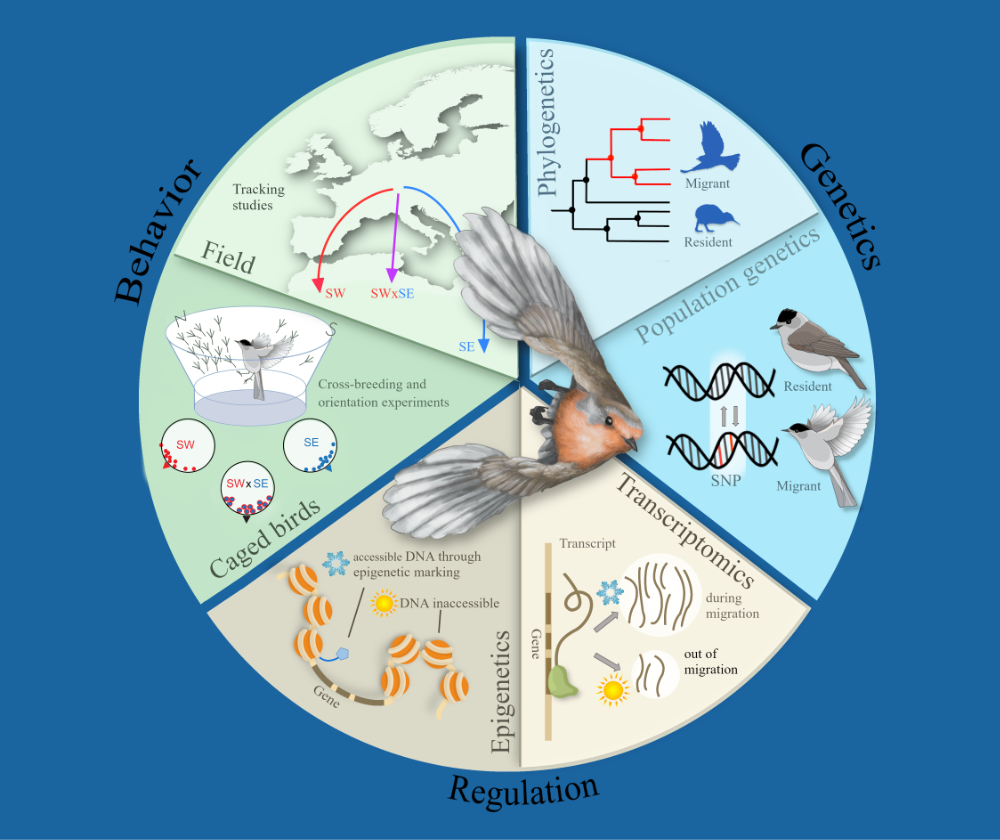Speaker
Description
Differences in migratory behaviour has long been suggested to potentially drive speciation, but the genetics underlying this process remains a mystery. Studies of migratory divides have played a crucial role for our understanding of how such differences can lead to reproductive isolation. Movements of hybrid zone clines can indicate either population change or selection acting on the loci studied. In central Scandinavia, two migratory phenotypes of willow warbler, Phylloscopus trochilus trochilus and P. t. acredula, meet and form a migratory divide. I made use of long-term samples from this area to see whether the contact zone has moved over the past three decades. Analyzing allele frequencies for three biallelic markers, I show that the trochilus allele has expanded northwards in central Scandinavia, in a marker strongly associated with migratory direction. The marker correlating with a temperature and habitat gradient on the other hand, was remarkably stable. This partial introgression suggests a movement of the hybrid zone, linked to differences in migratory behaviour where the westerly migrating trochilus is favoured under the current conditions.

